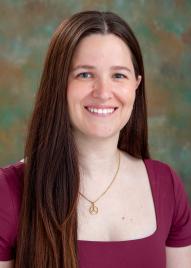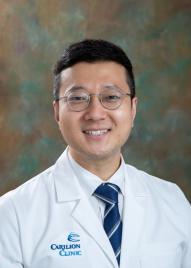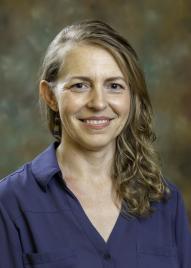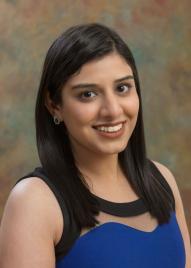Psychiatry Residency


PGY 1 Year
Shelby Olson-Inpatient Psychiatry Unit at Carilion Clinic
6:30 AM: Caffeine, Panic, and Preparation
I kick off the day with some much-needed caffeine and a quick breakfast. It’s a crucial combo that helps me feel awake, alert, and just anxious enough to mentally prepare for the questions I’ll inevitably be asked during rounds. Classic intern vibes.
7:15 – 8:00 AM – Precharting Power Hour
I aim to get in early so I can prechart on all my patients. This is my time to check in on overnight events, labs, medication changes, and any nursing concerns. The goal is to know my patients inside and out so I can advocate for them effectively and avoid the dreaded “I don’t know” during rounds. You want to be the expert on your own list because it will help increase the chances that everything will run smoothly and maybe even impress your attending. Maybe.
8:00 – 11:00 AM – Rounds + Real-Time Learning
I start by running the list with my attending and discussing any immediate issues or pressing changes that need to happen before rounds. There’s usually a quick personal check-in by my attending too. They always make an effort to ask how I’m doing and how residency is going, all of which are small moments that mean so much. Next, we round on all our patients, making sure they’re doing well, improving and then adjusting treatment plans as needed. Depending on your attending, rounds might include impromptu teaching (hallway pearls!) or brief discussions that push your clinical thinking. After we finish, we regroup to finalize plans and ensure we’re aligned for the day.
11:00 AM – 4:45 PM – Notes, Pages, and Patient Care
And now: Notes! Everyone’s favorite part of the day. This block of time is spent documenting the information gathered from rounds, fielding pages from our incredible nursing staff, and addressing new concerns as they pop up. Tasks can include anything from adding PRNs, ordering consults, clarifying treatment plan with patients, responding to medical issues, or managing new admissions. The pace can be brisk, and the volume variable, but I always feel immensely supported by my attending, my co-residents, and the rest of the team.
4:45 – 5:30 PM – Sign Out and Wrap-Up
As the day winds down, it’s time to sign out to the short call team (typically an intern + senior covering 4:45–8:30 PM). We hand off any ongoing concerns: potential temporary detainment orders (TDOs), agitated patients needing PRNs, or anything else that might come up overnight. Since short call covers all the patients on the unit, the goal is to keep them well-informed and set them up for success.
5:30 PM – Home, Dogs, and Decompression
And that’s a wrap! I head home, grab dinner, and spend time with my fiancé and our dogs. I try to read up on something that came up during the day, but I also prioritize rest and decompression… because I’ll be back at it tomorrow!

PGY 2 Year
Jin Woo Park-Geriatric Psychiatry Rotation
The second year in psychiatry residency at Carilion is definitely a change in scenery compared to the first year which is inpatient heavy. I started with 4 weeks block of geriatric psychiatry which is done at multiple sites including outpatient clinic at Tanglewood Mall, at Salem VA Medical Center and a local long-term care facility. I live with my family in a neighboring town of Cave Spring, which is technically a back-to-back city attached to Roanoke. From where I live, Tanglewood Mall is just about 4-5 minutes of quick drive compared to 15-minute drive to the main hospital. Geriatric psychiatry definitely comes with different set of challenges. Differences in outpatient vs. inpatient practice, change in patient demographics, presenting symptoms and underlying comorbidities are some of the changes to name a few. I feel that this block would definitely cement the knowledge on major neurocognitive disorders especially Alzheimer's disease and how to navigate through the patients and their family members and everything in between, as a chronic but highly debilitating disease such as Alzheimer's disease can be both emotionally and physically taxing for the caretakers. Opportunities such as this really allow us to take account of social aspects of medical and psychiatric treatment, which oftentimes get lost in translation. Another great thing about working at Tanglewood Mall is that there are quite a few lunch options. Also, it is very close to the Carilion Wellness fitness center where we receive free membership as a resident physician.

PGY 3 Year
My name is Rachel Easter and I am a third-year resident and mother to an active, energetic 13-year-old daughter. Third year in our program focuses on outpatient clinic treatment. Our schedule is more consistent during this year as we focus on treating patients over multiple sessions, developing longer term relationships. To minimize driving, I scheduled full days clinics at the Salem Veteran’s Affairs Medical Center, Adult Outpatient Psychiatry (Tanglewood), OB Gyn/Women’s Mental Health Clinic, Office Based Addiction Treatment (OBAT) Group Therapy, Fralin Free Clinic (primarily unhoused and individuals experiencing sheltered homelessness at the Rescue Mission). I love that I get to work with a diverse population of individuals in these different settings! The outpatient setting is where all the knowledge from 1st and 2nd years really helps me provide high quality patient care.
My days typically start by taking my daughter to school and then starting clinic around 8:00am. On most days, I’m finished by 5:00pm and only very rarely need to complete documentation at home. With good planning and scheduling, managing my family and work schedule is very reasonable. Our program is supportive of non-traditional students and working parents, and I have found my attendings and fellow residents always willing to help when needed. Despite a robust schedule of patients in various clinics, I always feel that my schedule is flexible enough to accommodate important things, such as family obligations, appointments, and lunch!
Autonomy in 3rd year has been very important in my growth and development, and my supervisors continue to provide excellent guidance for treatment and therapy. Residents are also given latitude to select patients we feel are a good fit for us instead of being assigned patients by the program, and I really appreciate getting to select patients to practice the skills of my choice. Overall, I’ve been amazed at how I’ve progressed in my training so far, and I am getting daily practice in clinic to continue to diversity and grow my skills.

PGY 4 Year
Hey peeps!
I am Kajal Mawa, go by KJ , currently rotating through an elective observational rotation at Pain Clinic through Salem VA Medical Center and here is how my typical day goes :
7:30 AM – Morning Commute
Chai in hand, I head to the VA. Since this is an observation rotation, the day feels different — less about cranking through notes, more about watching, listening, and picking up little lessons from how attendings interact with patients.
8:00 AM – Pain Clinic IDTs
The day kicks off with IDTs — interdisciplinary team meetings where physicians, pharmacists, psychologists, and physical therapists all weigh in on the veterans scheduled for the day. Most patients carry stories of chronic pain layered with PTSD, depression, or substance use. Even before the patient is stepping into the interview room, you can sense how complex the meeting will be.
10:00 AM – Shadowing session
I follow the attendings as they navigate visits — everything from discussions about opioid contracts to coaching veterans on coping strategies. Since I’m not responsible for charting, I can focus on the art of how they phrase things. A small shift in wording can change the whole tone of the room, and it’s cool to notice that in real time.
12:00 PM – Lunch with My Co-Resident
By noon I spend some time with my colleague, who is a transitional medicine intern and rotating on pain right now. We head down to the VA cafeteria. It’s become our routine to grab food together, decompress, and compare notes about what we’ve observed in clinic that morning. I’m also on a mission to finish the balance left on my VA meal card before residency ends (feels like a quirky little milestone to hit, ha-ha).
1:00 PM – Afternoon Clinic
Back to shadowing — the pace is steady, with follow-ups and interdisciplinary visits. Some patients want med adjustments; others just need validation that their pain is real and worth addressing. I find myself quietly reflecting on how this work ties back to addiction psychiatry (since I am currently interviewing for fellowship in the same) where the line between pain management and substance can often blur.
4:00 PM – Wrap-Up
By late afternoon, the day winds down. Since I’m not writing notes, I leave with mental notes instead: phrases I want to borrow, strategies I want to avoid, and new questions to bring up during supervision.
Tuesday Twist
Tuesdays shake things up. In the morning, I join Dr. O’Brien at Tanglewood for collaborative care — reviewing cases with case managers for referred patients. In the afternoon, it’s my own outpatient clinic, where I get to put all this observing and learning into practice with my own patients.
 Back to Top
Back to Top